Does sustainability work without sacrifice or do we all have to cut back? Many people are firmly convinced that it is not possible to live in an environmentally friendly way without sacrificing quality of life and many nice things in life. They also fear restrictions and bans. But is that really so (bad)? I believe that those who first shout "you have to do without everything!" are actually just a little afraid of change. A meanwhile necessary change in our way of life, which would have to replace the self-created Environmental problems of our time require. But calm down: Sustainability doesn't mean that suddenly your whole life is turned upside down. On the contrary!
In this article, I would like to give you 10 examples of how sustainability can work without sacrificing anything, and that all that is needed is equivalent alternatives.
Here in advance already a short Overview for you:
- Drinking straws
- Coffee2Go mug
- Cheese, Butter, Milk & Yogurt
- Cling film
- Lunch boxes
- Burgers, Schnitzel & Steaks
- Shopping bag
- Search Engine
- Car and plane
- Water
Why many people believe that sustainability means sacrifice
Change is difficult for most people. This is especially noticeable in discussions with those who suddenly come up with a cornucopia of Preconceptions about the sustainable way of life throw around. One of them is that you "have to do without almost everything" if you live sustainably. That may be an oft-heard, yet not a good general excuse for just leaving everything as it is. Because sometimes a change of scenery is urgently needed.
"The purest form of insanity is to leave everything as it is and hope that something will change."
Albert Einstein (more under Change quotes)
In this case, to protect our environment, to protect our health and to protect all future generations and living beings on this earth. We have lived beyond our means for so long, wasting resources, that a change in our way of life is now simply inevitable.
The sudden change and the misconception of a lack of alternatives create a feeling of renunciation
For many, however, this change comes suddenly and unexpectedly - at the latest when politicians discuss and announce restrictions or bans. They believe that all the good things in their lives will now be taken away from them and their quality of life will be significantly reduced. This is one reason why the misconception has arisen that sustainability is not possible without doing without. But this concern is completely unfounded and is based primarily on media reports that increasingly talk about meat substitutes, more expensive airfares and electric cars.
However, most people have probably known for several decades that we need to adjust our lifestyles. Initially, environmentally friendly alternatives for food such as meat or utensils such as straws were still relatively scarce. No wonder, then, that the impression of abandonment was created. An impression that has persisted to this day for those who have since taken no or only a limited interest in sustainability. And so they have completely missed the fact that in the meantime dozens of equally delicious or convenient but just more sustainable alternatives have appeared on supermarket shelves that make it possible not to have to do without the lifestyle to which they are accustomed.
10 examples of how you can live more sustainably without doing without
Here I would like to prove to you with 10 examples that a more sustainable life also works without having to "tighten the belt". Let's go!
1. drinking straws
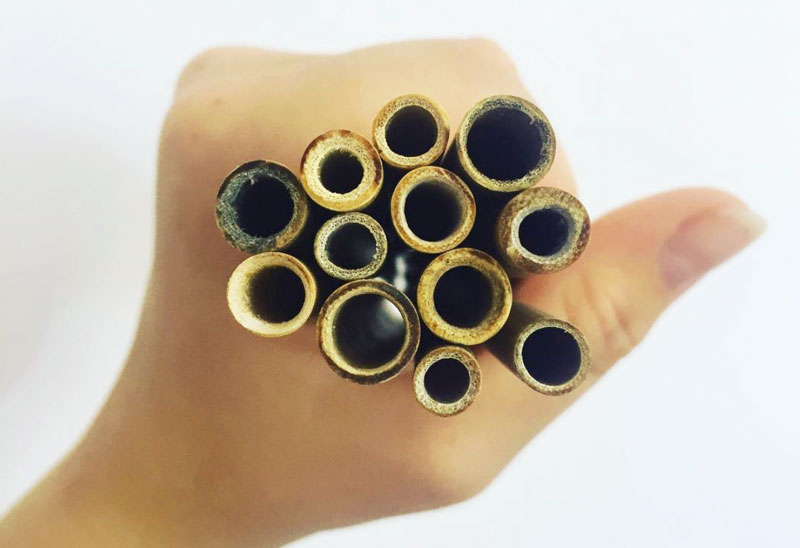
"Oh come on, what's one plastic straw going to do" is something you often hear. After all, straws seem so small and insignificant. But if 8 billion people thought that way, we would have a massive environmental problem from drinking straws alone. Anyone who is concerned with the plastic free life employs, white, that there is hardly an everyday product for which more environmentally friendly alternatives are available. Here are some examples:
- Stainless steel straws (is available here*)
- Bamboo straws (is available here*)
- Glass straws (is available here*)
- Real straws (disposable)
- Paper straws (disposable)
A great example of sustainability without sacrificing anything, right? And if straws aren't really that important to you, you can leave them out altogether if you like.
2. coffee2go cup
In Germany, around 320,000 disposable cups for hot drinks are consumed every hour - almost three billion a year!₁ Is it really a sacrifice to simply pay a deposit for a reusable cup that you return later? Or if you bring your own washable ToGo cup and sip your beloved coffee out of it? Many cafés even offer discounts if their customers are environmentally conscious. A prime example of how to save money through sustainability can and that environmentally friendly action is also possible without restrictions.
3. cheese, butter, yogurt, milk & co.
The vegan lifestyle is on the rise. And for good health, ecological and ethical reasons. Many people are now allergic to the word "vegan" because they fear that they will soon not be allowed to consume milk, yogurt, butter, cream or cheese. No more cheese?! You can't do that! The Vegans annoy! By the way, I personally also live vegan and do not feel that I have to do without anything.
Hafer-, Soja-, Reis- und Mandelmilch, Soja-Joghurt, pflanzliche Butter, vegane Sprüh- und Schlagsahne und Frisch-, Streu- und Scheibenkäse auf Mandelbasis füllen die Supermarktregale. Und beinahe im Wochentakt kommen neue, extrem leckere Alternativen dazu. Probiere sie einfach Mal aus, bevor du sie, so wie auch ich früher, abstempelst und pauschal davon ausgehst, dass Nachhaltigkeit ohne Verzicht nicht möglich ist. 🙂
Tip: Find out exactly now in a separate article, why i live vegan.
4. cling film
Another example of how you can live sustainably without doing without? Cling film! It is used to To preserve food a little longer. A good remedy for food waste - Unfortunately, however, this creates a lot of waste. But there are of course sustainable alternatives for this as well:
- Beeswax wipes (is available here* - or do it yourself)
- Oilcloths (vegan alternative, is available here*)
You can simply wash off the flexible oilcloths and use them again. Absolutely uncomplicated!
Tip: At Reduce food waste, you'll find out what else you can do!
5. lunch boxes
No one is forcing you to throw away those tried-and-true plastic Tupperware containers. Instead, you should just use them as long as you can. But once they give up their ghostyou can replace them with plastic-free Stainless steel lunch boxes or Glass lunch boxes with bamboo lid replace. Here, too, you won't feel any difference and are still more environmentally friendly on the road.
6. burgers, schnitzel, steaks & co.
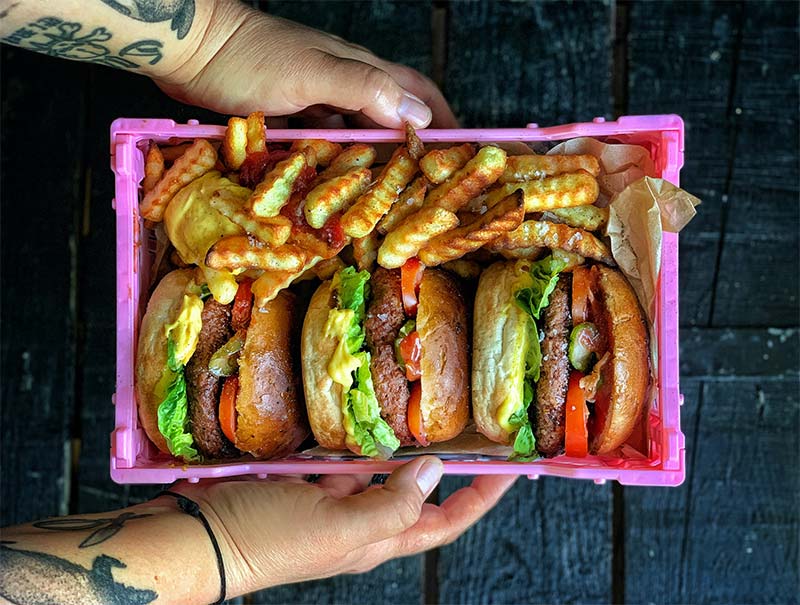
You're afraid that the vegans will soon take away your beloved burgers, schnitzels and steaks? Don't worry! I still eat all that, too. Only more climate-friendly and without Factory farming and cruelty to animals. The burger patties from soy, amaranth or buckwheat are no longer distinguishable from their meat counterparts in terms of appearance, taste and chewing sensation.which, by the way, is also only so tasty because it is seasoned accordingly. The selection of schnitzel and steak alternatives (e.g. vegetable schnitzel or seitan steak) is also huge. So who of a Vegan for barbecue eingeladen wird, muss sich nicht fürchten , dass dort nur ein bisschen Grünzeug auf dem Rost liegt. 😉
Tip: You find that it is is unmanly to be vegan? In the linked article I question this daring theory.
7. shopping bag
In Supermarkets in Australia there were riotswhen plastic bags were banned. Some customers even got physical with the staff! There was an incredible outcry, although the ban was announced for a long time. Here in Germany, too, many people were incensed about the Introduction of fees for plastic bags. At the same time one would like to give only the Plastic waste in the environment counteract.
But this example also shows that sustainability is possible without having to make sacrifices. Because with the classic, reusable Jute bag is the, after a short use also cheaper alternative, long since on the market. The jute bag is definitely also one of the sustainable lifehacks, which already our grandparents have applied.
8. SEARCH ENGINE
Power consumption, data collection or tax tricks bring the most used search engine in the world again and again in the criticism. There is no reason why we should have to do without their services, which make our lives so much easier. Because fortunately there are also here sustainable search engine alternatives. Here are two examples that you can safely make your default search engine:
- Ecosia (plants a tree for about every 45th search query)
- Gexsi (promotes sustainable environmental projects)
9. car, plane & co.
Just because flying by air with its greenhouse gases contributes significantly to global warming doesn't mean you should never fly on vacation again. But it's important that you don't fly halfway around the world five times a year. Climate Budgets stay. For this I have given you some tips on flying as "sustainable" as possible compiled.
The Speed limit on highways means an extreme infringement of their freedom for many people. They fear having to give up the freedom to drive as fast as they want. But they also give up endangering themselves and others. They also forego leaving their partners behind as widows and children as orphans. And to blowing even more CO2 into the atmosphere, which would harm the climate change that has consequences for all people - including oneself.
No one wants to ban driving in itself either - through Electric cars and a environmentally friendly driving is only tried that Making driving more sustainable. At the same time, investments are being made in public transportation and bicycle routes in cities to make the green alternatives to the car more attractive and safer. Sustainability therefore does not necessarily mean doing without, but rather a meaningful change that benefits the general public.
Tip: Did you know that you can also offset the greenhouse gas emissions needed for your own lifestyle? You can learn more about this at CO2 compensation.
10. WATER
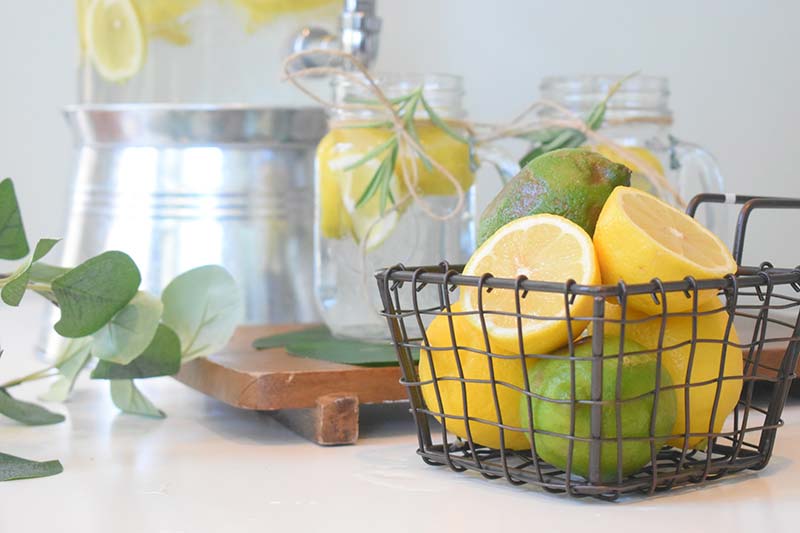
Mineral water from plastic bottles is incredibly tasty, so you do not want to do without it if possible. But it also mostly with Microplastics burdened, relatively expensive and difficult to carry. In addition, companies such as Nestlé under criticism, because, among other things, they are privatizing water sources around the world and draining entire towns, such as Vittel in France.
The much cheaper, more convenient and sustainable alternative is water from the tap. If the performance water is too boring for you, you can "upgrade" it with lemon, mint or herbs of your choice. The Sodastream for your own kitchen is also a more environmentally friendly and cheaper alternative to water from plastic bottles, which is hundreds of times more expensive. So here, too, sustainability does not mean a real sacrifice.
Tip: You want to know how to live even more sustainably can? Then check out the linked post!
Sustainable without sacrificing - It's possible!
„Wer nachhaltig leben will, muss auf fast alles verzichten!“ – Ach komm schon! 😉 Vielleicht gibt es noch nicht für jedes Alltagsprodukt eine nachhaltige Alternative. Bis sie kommt, kann ich verstehen, dass es sich wie ein Verzicht anfühlt. Doch dieser Verzicht ist dann positiver Natur: man verzichtet darauf, den Planeten auf Kosten der eigenen Kinder und Enkelkinder, sowie auf Kosten anderer Menschen und Lebewesen zu zerstören.
But often it is habits that are not even really necessary, about whose prohibition or restriction we get upset. That is why it is also valid to simply do something live more minimalist. And this is definitely possible without reducing one's quality of life.
Do you have any questions or suggestions about this article on sustainability without abandonment? Then, as always, feel free to write me a comment.
Stay sustainable,

References:
₁ BMU: Coffee-to-go cups, https://www.bmu.de/faqs/coffee-to-go-becher. [07.05.2021].

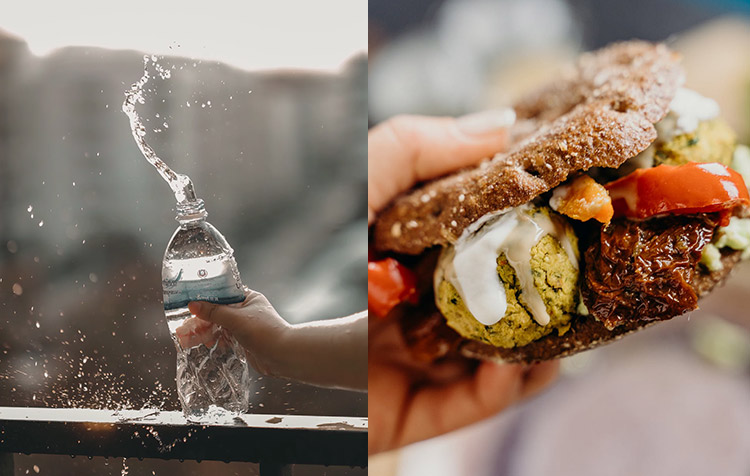


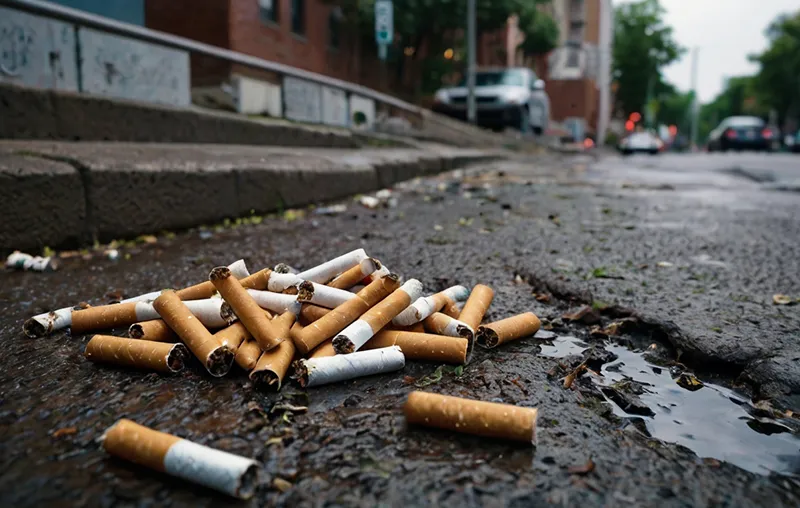


First of all thank you very much mals for this great post!
Basically, it's really great that there are so many alternatives! It is easier for everyone to look for alternatives and use them instead of doing without.
But if you really want to live sustainably, you HAVE TO WAIVE. These alternatives are tempting. In the long run, it makes a small difference which straw you need. But if you really want to make a DIFFERENCE a CHANGE, you do without whenever possible. The most sustainable option is NOT a straw.
LESS IS LESS:D
Comments are closed.